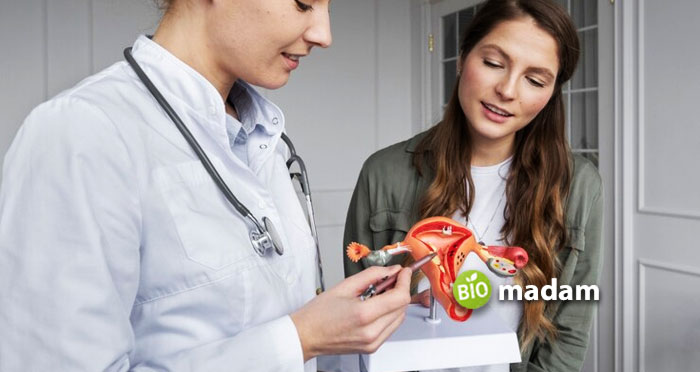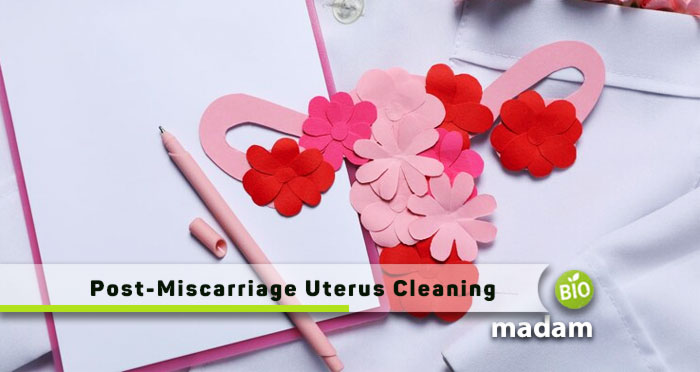A miscarriage is an emotionally and physically challenging experience that leaves many women grappling with grief and uncertainty. Beyond the emotional toll, the aftermath of a miscarriage requires careful attention to physical recovery, particularly in ensuring the health of the uterus. This guide explores natural ways to clean the uterus after a miscarriage, encompassing physical, emotional, and herbal/nutritional approaches. Understanding the body’s natural healing process and recognizing signs that the uterus needs attention are crucial steps in embarking on a journey of recovery.
Understanding Miscarriage
Before delving into the natural methods of cleaning the uterus after a miscarriage at home, it’s crucial to acknowledge the emotional and physical toll a miscarriage can take. A miscarriage, defined as the loss of a pregnancy within the first 20 weeks, is a sadly common occurrence affecting over 10% of known pregnancies. Recognizing the signs, such as vaginal bleeding, cramping, and passage of tissue, is pivotal for seeking timely medical attention.
How to Clean Uterus after Miscarriage Naturally
Physical Recovery
Rest and Medications
One of the initial steps in post-miscarriage recovery is to grant oneself the gift of rest. Adequate sleep, light exercise, and meditation play pivotal roles in easing the body and mind. Additionally, following prescribed medications diligently aids in managing pain and promoting a smoother recovery process.
Hot and Cold Compress
To alleviate discomfort, consider the soothing effects of hot and cold compresses. Applying a warm compress relaxes lower abdominal muscles, while a cold compress provides relief from pain and inflammation.
Alternating between the two for short intervals can contribute to a more comfortable recovery.
Nutrient-Rich Diet
Eating right is paramount during this period. Opt for nutrient-dense foods, including green leafy vegetables, beans, beets, seaweed, and lean proteins like chicken or turkey. These choices not only replenish the body but also address the iron loss often associated with miscarriages. Soups, smoothies, and stews are gentle options that are easy to prepare and digest.
Foods to Clean Uterus after Miscarriage:
- Pineapple: Known for its anti-inflammatory properties, pineapple may assist in reducing inflammation and promoting healing.
- Ginger: With its anti-nausea and anti-inflammatory properties, ginger can be beneficial for digestion and overall uterine health.
- Turmeric: A natural anti-inflammatory, turmeric may aid in reducing pain and inflammation.
- Leafy Greens: High in vitamins and minerals, leafy greens contribute to overall wellness and support the body’s recovery process.
- Omega-3 Rich Foods (Chia Seeds, Flaxseeds): Omega-3 fatty acids are essential for inflammation control and overall health, and incorporating chia seeds or flaxseeds can be beneficial.
Herbal Antidotes

Herbs have long been recognized for their healing properties, including natural remedies to clean the uterus after a miscarriage. Consult with your doctor before incorporating herbal supplements. Some notable herbs for uterine health include:
- Black Cohosh Root: Eases uterine pain and reduces inflammation.
- Angelica: Enhances circulation to reproductive organs and reduces inflammation.
- Yarrow Leaf: Effectively controls heavy bleeding and acts as an excellent uterus cleaner.
- Vitex or Chaste Tree Berry: Relieves hormonal imbalances in the pituitary gland.
- Hypericum Perforatum: Aids in managing anxiety and mild depression.
- Cramp Bark: Effectively manages cramping.
- Motherwort: Cleanses the uterus, managing bleeding and removing placental material.
Emotional Recovery
Consult a Doctor
Seeking guidance from a healthcare professional can provide clarity on the reasons behind the pregnancy loss. A doctor can also offer support and preparation for a subsequent successful pregnancy.
Don’t Stress Yourself
Recognize that the hormonal changes post-miscarriage can contribute to feelings of irritability and moodiness. Allow yourself time to adjust, and engage in activities that keep you distracted without causing stress.
Meditation and Exercise
Incorporating light breathing exercises, short walks, or meditation into your routine can help release endorphins and boost your mood. However, it’s crucial to consult with your doctor regarding suitable exercises for your individual situation.
Connect with Your Partner
Recognize that your partner has also experienced the loss and may be struggling to express their emotions. Communication is key during this challenging time. Consider the following ways to navigate this journey together:
- Space: Allow yourselves the necessary time to grieve and heal. Avoid the temptation to rush back to normalcy; instead, encourage each other to move through the grief process. This shared experience, though challenging, is vital for healing.
- Share: Open communication is essential. Discussing your feelings with your partner, friends, or family can be a therapeutic way to process grief and find support.
- Move: Engaging in gentle activities like walking, dancing, or yoga with your partner can release endorphins, providing a distraction and supporting the healing process.
- Honor: Undertake a soulful activity to honor the pregnancy and the baby. Whether it’s lighting candles or planting trees, these actions can help alleviate emotional burdens and facilitate moving forward.
- Bless: Express gratitude for the positive aspects of life and the ability to create new life. Consider activities like abdominal massage or spiritual healing meditation classes to foster motivation and healing.
Acceptance is Key
Instead of blaming yourself, acknowledge that the miscarriage likely occurred due to a medical reason. The stages of grief—denial, anger, bargaining, depression, and acceptance—are a natural part of the healing process.
Therapy
In some cases, women may experience depression post-miscarriage. Seeking professional help, including psychotherapy or medication prescribed by a doctor, can provide the necessary support and guidance to navigate through these challenging emotions.
Post-Miscarriage Precautions
After a miscarriage, it’s natural to look ahead, and for that you’ve to follow precautionary measures, including:

- Schedule a follow-up appointment with your doctor to discuss readiness for future attempts at pregnancy.
- Follow specific recommendations provided by your healthcare provider.
- Adopt a balanced diet, including regular exercise, prioritize adequate sleep, and manage stress.
- Consider consultations with fertility specialists or reproductive health experts.
- Seek emotional support from friends, family, or mental health professionals.
- Educate yourself about factors contributing to the miscarriage for informed decisions.
- Follow your doctor’s advice on when it’s safe to attempt conception again.
When can You Resume Normal Activities after a Miscarriage?
Recovery timelines post-miscarriage vary, with some individuals ready within weeks, while others need more time. Initially, prioritize rest, avoiding strain, sex, and heavy exercise. Consult your healthcare provider for personalized guidance. Research suggests many women experience a return of menstrual cycles within 4-6 weeks, coinciding with hormonal stabilization.
Following World Health Organization guidelines, waiting six months before conceiving again reduces the risk of miscarriage, stillbirth, maternal anemia, and low birth weight. A cautious approach, backed by medical advice, ensures a gradual return to normal activities and future family planning.
Conclusion
In the aftermath of a miscarriage, the journey to recovery is unique for every woman. Embracing natural methods for uterine cleansing aids both physical healing and emotional well-being. Remember, there’s no fixed timeline for healing, and it’s crucial to be patient and compassionate with yourself. Seek support, prioritize self-care, and trust that, in time, both body and spirit will find their way back to balance.

People call me Domonique Smith in Ross! I was always fond of helping people, so opted an MBBS degree to pursue my passion as my career. My major interests fall in dealing with pregnant ladies and helping them in the best of my wills for their comfort. I am further planning to choose Gynecology as my major, so wish me luck!

